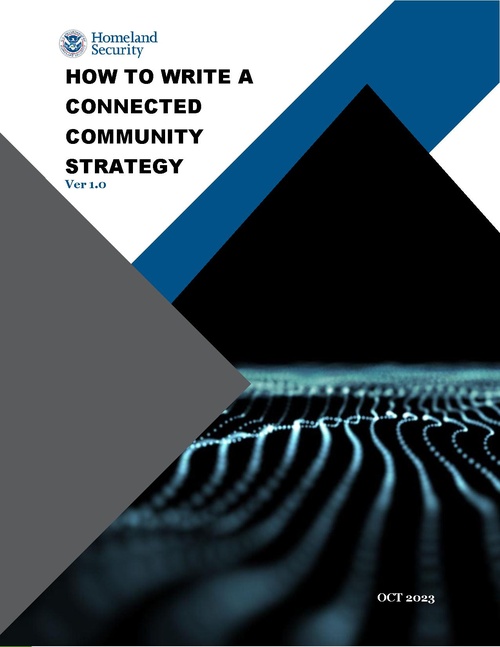DHS Guidebook on How to Write a Connected Community Strategy: Difference between revisions
No edit summary |
No edit summary |
||
| Line 8: | Line 8: | ||
|idtype=doi | |idtype=doi | ||
|file=23 1030 pol cirr final-how-to-write-a-connected-community-strategy 508.pdf | |file=23 1030 pol cirr final-how-to-write-a-connected-community-strategy 508.pdf | ||
|abstract=The U.S. Department of Homeland Security (DHS) has partnered with representatives from New York (NY), San Jose (CA), Memphis (TN), Chattanooga (TN), and Colorado State University to develop this "how to" guide to help community leaders build a digital transformation strategy. Contributors include chief information officers, chief information security officers, chief privacy officers, economists, technology experts, cyber policy professionals, risk analysts, and former municipal executives, each with unique experience driving community digital transformations. This foundational guide is the first in a series of guides that DHS hopes will help communities achieve their connected community goals. | |||
}} | }} | ||
While the audience for this “how-to” guide is community planners, the audience for a connected community strategy based on this guide should always be community residents and community stakeholders. Therefore, a successful connected community strategy should provide the readers with the “who, what, when, where, and why” of a connected community transformation. | While the audience for this “how-to” guide is community planners, the audience for a connected community strategy based on this guide should always be community residents and community stakeholders. Therefore, a successful connected community strategy should provide the readers with the “who, what, when, where, and why” of a connected community transformation. | ||
Latest revision as of 00:52, March 4, 2024
The U.S. Department of Homeland Security (DHS) has partnered with representatives from New York (NY), San Jose (CA), Memphis (TN), Chattanooga (TN), and Colorado State University to develop this "how to" guide to help community leaders build a digital transformation strategy. Contributors include chief information officers, chief information security officers, chief privacy officers, economists, technology experts, cyber policy professionals, risk analysts, and former municipal executives, each with unique experience driving community digital transformations. This foundational guide is the first in a series of guides that DHS hopes will help communities achieve their connected community goals.
While the audience for this “how-to” guide is community planners, the audience for a connected community strategy based on this guide should always be community residents and community stakeholders. Therefore, a successful connected community strategy should provide the readers with the “who, what, when, where, and why” of a connected community transformation.
